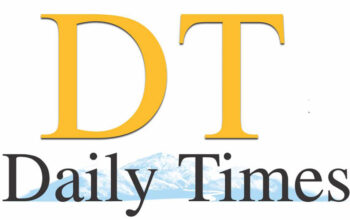Federal Minister for Law and Justice Senator Azam Nazeer Tarar said on Tuesday that the Parliamentary Committee on Electoral Reforms has reached a consensus, adding that things have settled down and the report of the committee was expected to be finalised by July 20.
Speaking to the media after the committee’s fifth in-camera meeting, the law minister also revealed that the overseas Pakistanis would not be able to cast vote through internet voting in the upcoming general elections.
The committee had hit unexpected snags after some political parties brought forth new suggestions during a meeting on Monday, ultimately delaying its final recommendations. However, the law minister said that no new amendments have been proposed, adding that the amendments were related to the routine functioning of the election process and it has been tried to make the election system more transparent.
The committee, tasked with proposing crucial amendments to the Elections Act of 2017, has held series of in-camera meetings to make the recommendations in respect of electoral reforms to ensure free, fair and transparent elections, along with draft legislation, if required for this purpose.
Talking to media, the law minister said that the nomination forms were streamlined a bit further in Tuesday’s meeting and the final report of the committee carrying changes in the Election Act of 2017 was expected to come out by Thursday.
Without giving specifics, Tarar revealed that the Grand Democratic Alliance’s (GDA) Fehmida Mirza gave some suggestions to the committee regarding election process, saying she would give a few more suggestions in writing as well.
Also read: NA dissolution date not decided yet, clarifies Marriyum
“Everything else has been settled down; the report will be finalised by Thursday and as soon as the report is finalised, it would be shared with you,” Tarar responded to a question. To another question as to what measures have been taken to reduce the allegations of rigging following polls, Tarar said that the rigging allegations could be reduced by not only making the system more effective but ensuring its implementation.
“I always say that the benefits of a good piece of legislation can only be taken if the behavior is good towards it and if we collectively ensure implementation showing complete faith in them,” Tarar said.
Urging to pray that things are ultimately put into practice, Tarar said that all the political parties have been taking steps with consensus, the Election Commission of Pakistan is on board and the Commission has been empowered as per the mandate given in the Constitution. “It has been a worthy effort; it has been done without getting influenced by the political affiliation,” Tarar said, hoping the people would feel the difference.
To a question if overseas Pakistanis would be able to cast vote in the upcoming general elections, Tarar replied that the overseas Pakistanis can cast vote but that would not be possible through internet voting – suggesting that they will have to come to Pakistan if they want to cast vote.
Reiterating that the overseas Pakistanis would not be able to cast through internet voting, Tarar while referring to the reports of the committee as well as the Supreme Court said that it was repeatedly stated that internet voting was not possible and things would be taken further after conducting pilot projects.
The proposed amendments to the Elections Act of 2017 revealed that the wording of Section 94 (voting by overseas Pakistanis) has been reverted to original wording of the section. “The Commission may conduct pilot projects for voting by overseas Pakistanis in bye-elections to ascertain the technical efficacy, secrecy, security and financial feasibility of such voting.
“[It] shall share the results with the government, which shall, within fifteen days from the commencement of the session of a house after the receipt of the report, lay the same before both Houses of Majlis-e-Shoora (Parliament),” the original wording reads.
The proposed amendment states that the ECP shall share the consolidated results along with recommendations in the form of a report with the government, which shall lay the same in parliament and arrange discussion thereon followed by appropriate legislation.
To a question what would happen if President Dr Arif Alvi doesn’t sign the bill and returned the same to the parliament even after it was passed from the National Assembly and Senate, Tarar showed confidence in the president by saying that the president won’t take any such step as it is not the kind of a bill that would be blocked.
“I do not build things on assumptions; I stay in reality,” he said before adding that “it’s enough for today.”
As the political landscape braces itself for the transition, the parties are actively engaged in roughly 70 proposed amendments to the elections act, seeking to shape the electoral framework in line with their respective agendas.
Read the full story at the express tribune website.
